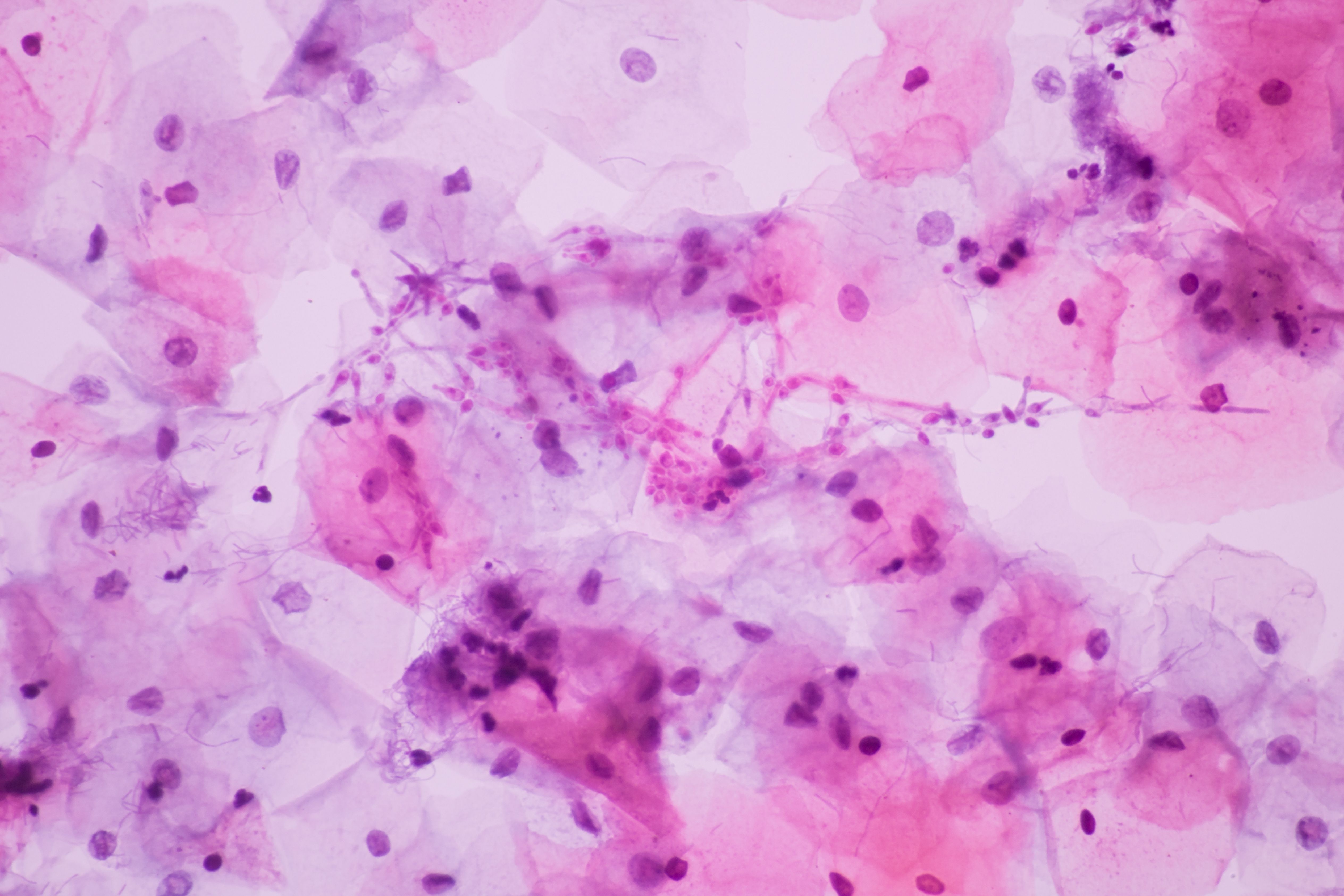Pushing CLN-619 Forward for the Treatment of Advanced Gynecologic Malignancies
CLN-619 has emerged for the treatment of advanced solid tumors in the clinical trial setting. Early results are promising, says lead investigator Judy Wang, MD
Judy Wang, MD

Aside from curative-intent surgery, platinum-based chemotherapy remains the standard-of-care treatment for gynecologic malignancies. However, there are select patients who will become resistant to or progress on platinum-based chemotherapy.
Developing drugs with novel mechanisms of action may offer much-needed benefit for platinum-resistant/relapsed patients with gynecologic cancers. According to Judy Wang, MD, some of the drug types being introduced include targeted therapies, antibody-drug conjugates, and immunotherapies. Among these, CLN-619, a MICA/B directed humanized IgG1 antibody, is showing promise.1
“CLN-619 is an agent by Cullinan Oncology. This is the first-in-class, humanized IgG1 monoclonal antibody that binds to MIC. Within our normal cellular physiology, our tissues can express stress-induced ligands MICA and MICB, like in the setting of infection or even the malignant transformation. These molecular tags mark the cell or targeted lysis through into NKG2D receptor engagement, thereby reducing antibody-dependent cellular cytotoxicity through NK and T-cell activation. Tumor cells, however, can shed MICA and MICB, resulting essentially in evasion of immune-mediated destruction,” explained Wang, medical oncologist, and associate director for drug development, Florida Cancer Specialists & Research Institute, in an interview with Targeted Oncology™.
Gynecology : © arcyto - stock.adobe.com

Early Signals
In preclinical models with expression of MICA on tumor cells, the use of CLN-619 delayed tumor growth. Administration of low doses of CLN-619 also led to robust antitumor activity in mice that bore MICA/MICB-expressing human tumor xenografts.1
“The preclinical data were actually presented at AACR in April 2022 and essentially they provided good data to confirm the mechanism of MICA/B shedding,” explained Wang.
From the preclinical study, it is now known that “CLN-619 functions by restoring the MICA/MICB expression on the surface of tumor cells, thereby enhancing the interaction between MYC and NKG2D, and promoting antitumor activity,” according to Wang.
The preclinical findings led to the launch of a first-in-human study (NCT05117476).2
Preliminary Results
In the phase 1, open-label, multicenter study, the safety, efficacy, and pharmacokinetic and pharmacodynamic activity of CLN-619 with or without pembrolizumab (Keytruda) was explored. Findings presented at ASCO 2023 showed that CLN-619 was active in patients with advanced solid tumors and was also well-tolerated.3
Twenty-three patients with advanced solid tumors, including colon cancer (n = 4), cervical cancer (n = 3), lung cancer (n = 3), prostate cancer (n = 3), and other tumor types (n = 10), were included in the phase 1, dose-escalation cohort.
One patient with a parotid gland tumor whose cancer had progress on a prior checkpoint inhibitor therapy achieved a complete response (CR). There were two partial responses in patients with endometrial cancer, 1 of whom had disease progression while on prior checkpoint inhibitor therapy. Stable disease was observed in 7 patients with various tumor types, including cervical, ovarian, salivary gland, and breast.
The treatment-emergent adverse events (TEAEs) that occurred in 20% of patients or more include abdominal pain (26%), nausea (22%), pyrexia (22%), and infusion-related reactions (22%).
Wang explained that “the most common treatment-related adverse events were infusion reactions at 21%, and then 8% for pyrexia.The study mandated corticosteroid medications for cycle 1 only. That helps mitigate the infusion reaction severity to grade 1 or grade 0.”
No TEAEs led to death in the study.
“It's important for us to be able to find additional therapy that provides good tolerability, low incidences of safety issues and toxicity, while providing potentially good objective responses. What we have seen so far with CLN-619 is that patients overall tolerate the agent quite well, in terms of mild or at least manageable adverse events,” said Wang. “As you can see, at least from the initial data presented for [phase 1] monotherapy, we’ve seen an objective response, as well as the responses for a number of gynecologic malignancies. Certainly, we're excited about this initial preliminary data. We're looking to see how that matures as we enroll more patients.”
REFERENCES:
1. Whalen KA, Mehta NK, Yalcin S, et al. Abstract 3506: CLN-619, a clinical-stage MICA/MICB-specific IgG1 antibody, restores the MICA/MICB-NKG2D axis to promote NK-mediated tumor cell lysis. Cancer Res. 2022;82(suppl 12): 3506. doi:10.1158/1538-7445.AM2022-3506
2. A study of CLN-619 alone and in combination with pembrolizumab in advanced solid tumors. ClinicalTrials.gov. Updated August 24, 2023. Accessed October 6, 2023. https://tinyurl.com/bp9dw7zb
3. Wang JS, Gutierrez M, Rasco DW, et al. A phase 1 dose-escalation study to investigate the safety, efficacy, pharmacokinetics, and pharmacodynamic activity of cln-619 (Anti-MICA/B antibody) alone and in combination with pembrolizumab in patients with advanced solid tumors. Presented at the American Society of Clinical Oncology (ASCO) Annual Meeting. June 2-6, 2023. Chicago, Illinois. Abstract 2532.
PROs Strengthen Case for Mirvetuximab Soravtansine as SOC in FRα+ Ovarian Cancer
March 16th 2024Patient reported health-related quality of life outcomes from the phase 3 MIRASOL trial strengthen the case for mirvetuximab soravtansine as a new standard of care for patients with folate receptor-alpha positive ovarian cancer resistant to platinum chemotherapy.
Read More